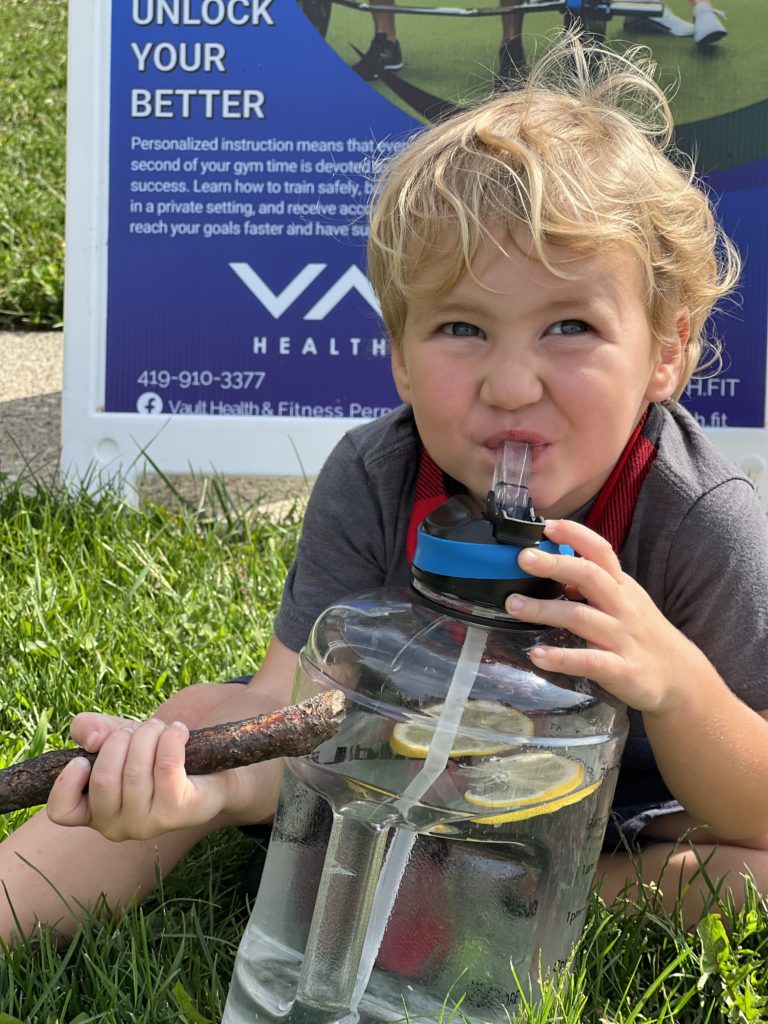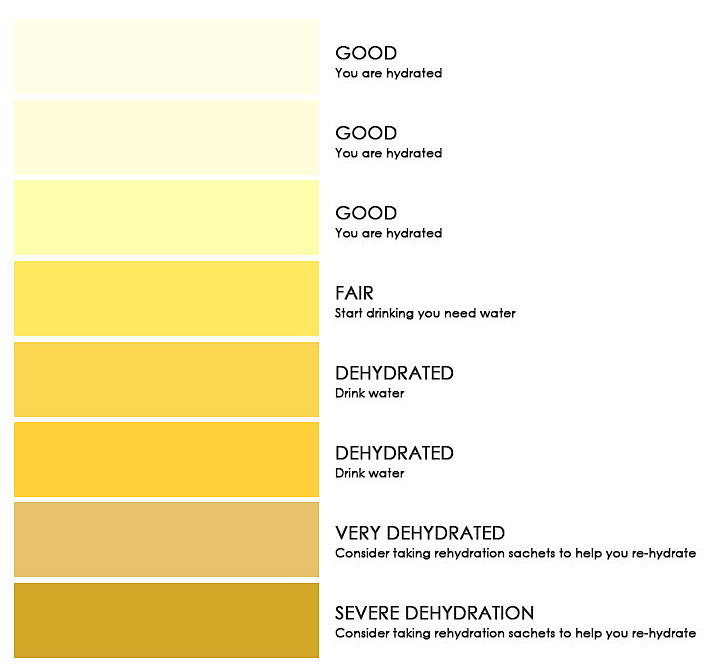You’ve probably heard the advice to drink 8 cups of water per day. Is this enough? Although it’s easier to remember, is this recommendation accurate?
Water recommendations depend on factors based on health, level of physical activity, and where you live. For example, someone working 8 hours outside in 95 degree Florida weather should be consuming more water than an individual working a desk job in air conditioning. Water requirements are dependent on several factors. However, the recommendation of drinking only 8 cups of water per day is the minimum a physically active individual should consume.

What are the Health Benefits of Water?
60-70% of your body weight is made up of water. Every cell, organ, and tissue in your body needs water to properly function.
- Helps to get rid of wastes through urination, perspiration and bowel movements
- Keeps your temperature regulated
- Lubricates for joints
- Protects sensitive tissues
Lack of water can lead to dehydration- a condition that your body cannot function properly due to lack of water in the body. Supplying the body with adequate amounts of water can prevent this state from occurring.
Negative effects on Athletic Performance with Dehydration Status
The feeling of thirst is the first sign of dehydration. In addition, the feeling of thirst is a delayed onset response to dehydration. Therefore, when you begin to feel thirsty, you are already in a state of dehydration.
A meta-analysis of 28 different studies concluded that 3-4% dehydration status decreased muscle strength, power and high-intensity endurance by 10%. (Felix, 2005). Drinking an adequate amount of water before workouts can prevent the feeling of fatigue.
Recommendations for exercise
Drink 6-10oz prior to activity, then another 7oz every 15-20 mins during the exercise.
The color of your urine is a great indicator to assess hydration status. Doctor Lyle McDonald says “Your pee should be clear or slightly yellow throughout the whole day. If you’re peeing 5x throughout the day and 2x after a workout, you’re doing pretty well.

Hydration and weight loss management
If you heard that drinking cold water burns more calories by increasing your resting energy expenditure and thought this statement was silly, you are correct. There is little to no research to support this claim. However, swapping out calorie containing drinks like alcohol and sugary drinks can help reduce total calorie intake, which will lead to weight loss.
Recommendations
- Amount
Healthy, physically active man- 15.5 cups (3.7 liters) per day
Healthy, Physically active women- 11.5 cups (2.7 liters) per day
***Recommendations cover fluids from water and other beverages. 20% of daily intake usually comes from food.
- Track it
Use a reusable water bottle. Track how many times you need to refill your water bottle throughout the day in order to reach your goal. There are additional apps you can use to track your water goal (MyFitnesspal, apple Fitness, and PLANT NANNY)
- Drink 15-20 oz first thing in the morning
When we wake up, our bodies are dehydrated. One of the best things you can do in the morning is rehydrating yourself. If you are a coffee person, make it an objective to first drink 15-20oz of water before taking a sip of coffee.
- Use a Straw!
Research has shown that people who drink from a straw consume more water than those who do not drink from a straw.
- Drink water throughout the meal
Drinking water throughout meal time will aid in the digestion process. In addition, taking sips of water throughout the meal can aid in the feeling of satiety by increasing the time it takes to finish a meal.
***The information above is generalized nutrition education and is not specific to individual needs. For personalized nutrition information, consider hiring a nutrition coach to help maximize your health and fitness goals.***
Adam Dunckel RDN, LD, MS
Sources
Effects on hypohydration on muscle endurance, strength anaerobic power and capacity and vertical jumping ability meta analysis (2005)
Felix-Antonie Savoie, Robert W Kenefick, Brett R Ely, Samuel N Cheuvront, Eric D Goulet.
https://pubmed.ncbi.nlm.nih.gov/26178327/
Nutrition and Healthy Eating
Mayo Clinic

